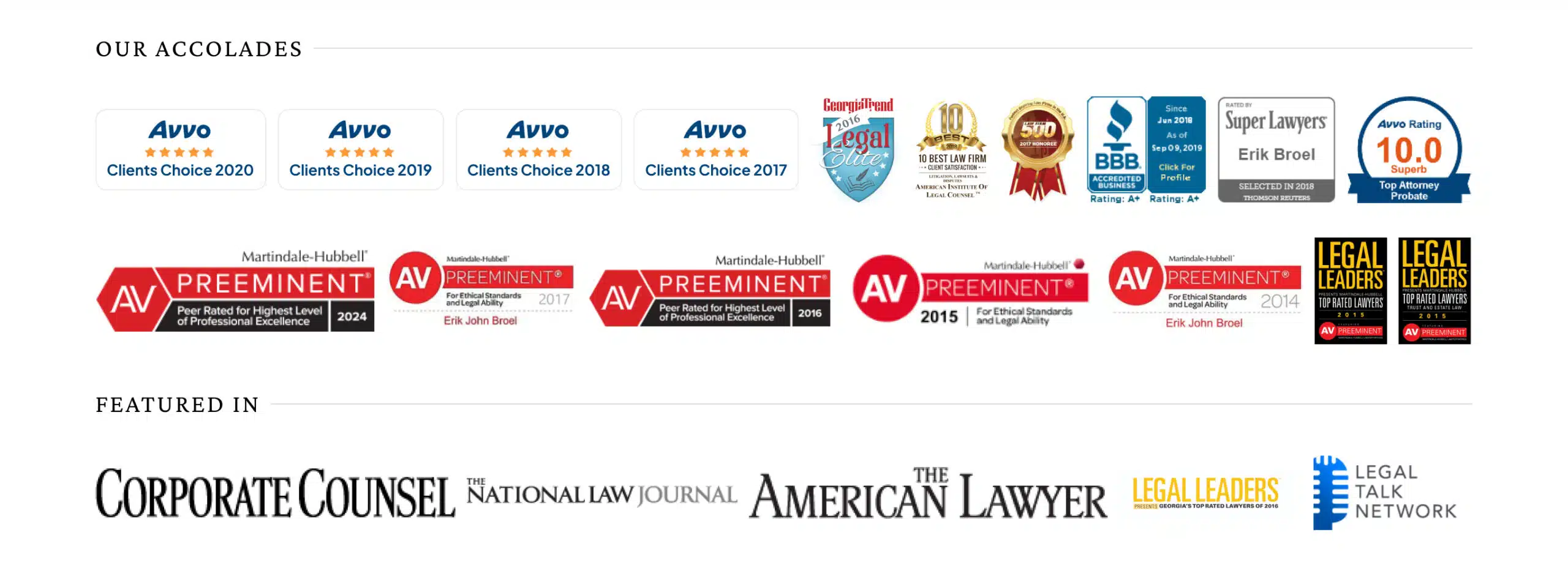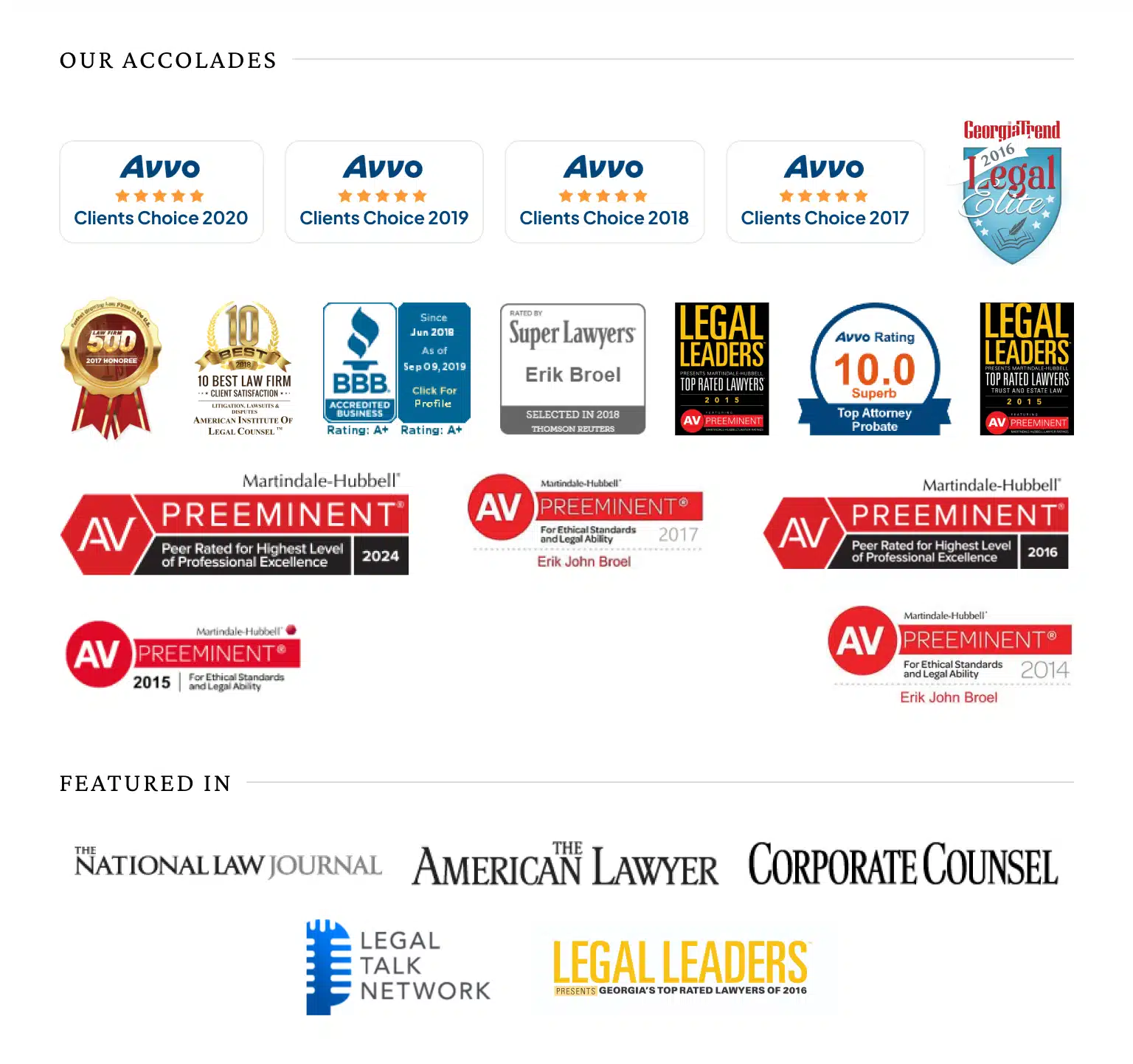Losing a loved one is difficult enough — managing their estate affairs while you grieve is even harder. When the responsibility to handle the deceased’s property falls on your shoulders, you may wonder what happens next. As a first step, the probate court will deal with the deceased’s assets based on how they were titled. Some will go through probate – probate assets; others may not – non-probate assets.
This entire process can be overwhelming, so if you have any uncertainty and want everything handled correctly, it’s best to seek help from an experienced probate attorney.
People tend to avoid probate whenever possible. However, it is through the probate process that the court determines how to manage the decedent’s estate, especially if the deceased’s assets have no named beneficiaries.
If there is a will, this document outlines how the appointed executor will distribute the assets.
To know the difference between probate assets and non-probate assets, we follow this simple rule:
All assets must go through probate by default unless an exception classifies them as non-probate assets.
Probate assets are possessions either titled solely in the deceased’s name or have a shared interest with another party (but without survivorship on the title).
Examples of probate assets are:
The probate court will look for Joint Tenants with Rights of Survivorship for a jointly owned property.
Joint Tenants with Rights of Survivorship (often abbreviated as JTWROS) is a way for multiple people to own real estate together.
In Joint Tenants with Rights of Survivorship, the owner’s interest automatically transfers to another person after death. In this scenario, probate will not be necessary.
It is considered best practice to file an affidavit with the real estate records for any possibility of selling the home in the future. Doing so will yield a clear record for the title agent when they do a title search.
After a person passes away, determining which assets belong to the estate is vital. All properties that the deceased owned will fall under one of two categories:
These are part of the probate estate, and the probate court process governs it. An executor will be responsible for distributing property according to the terms of the last will. Without a will, the administrator will manage them according to Georgia Law.
Probate assets are subject to creditors’ claims. If the estate does not have enough funds to pay its debts, the personal representative may sell them.
These assets are exempt from probate and will go directly to an individual. The probate court process or the will does not govern them, and they are not subject to creditors’ claims. In other words, a creditor cannot force the recipient to use non-probate assets to pay an estate debt.
If you’re unclear on the difference between probate vs non-probate assets, you won’t know if you’re overstepping your authority.
For probate assets, the executor or administrator is responsible for collecting assets and distributing to beneficiaries any property the estate holds.
Non-probate assets, on the other hand, skip probate and go directly to a named beneficiary. The recipient must then coordinate the distribution of non-probate property, though the personal representative may also assist that individual.
You must consider common personal property shared between the deceased and another person because this requires further investigation. Georgia Law allows ownership to be structured in a couple of different ways:
For Tenants in Common, real estate is a probate asset, while for joint tenancy, real estate is considered a non-probate asset.
To settle probate assets, the person or persons chosen to administer the estate must undergo the following phases.
When a loved one passes away, any assets with a named beneficiary or a shared interest with another party with survivorship on the title are considered non-probate assets.
Non-probate assets examples:
Only non-probate assets bypass the probate process.
These assets will be distributed from the financial institution directly to the designated beneficiary (e.g., surviving spouse or family members).
The only caveat would be if someone were to dispute the new owners of certain non-probate assets and win the case. The non-probate assets will then return to the estate and may be considered probate assets.
Assets with the following are usually non-probate properties:
Non-probate assets are unaffected even if the estate has far more debt than assets. They are protected from a year’s support claim, Georgia’s version of spousal support.
Regardless of what the will says, non-probate assets go directly to the designated individual.
Can someone dispute a beneficiary on a non-probate asset?
Yes. It is a complex legal process, but there are ways to attempt to contest the beneficiary. These types of cases are typically heard in a higher court.
If the asset has a clear beneficiary, it is a non-probate asset. You can then contact the financial institution to inform them of your loved one’s passing and to know the next steps.
If you have no idea if there is a beneficiary designation, you may need to contact the financial institution to inquire if you are the named beneficiary. If the financial institution requires Letters of Testamentary or Letters of Administration before releasing the funds, then this is a probate asset.
There may be times when assets are sentimental items with little to no monetary value. In this case, it is best to be under the advisement of a probate attorney before distributing any assets from the estate to ensure that you are doing everything correctly.
There have been estate disputes over items that may hold sentimental value and not monetary value. To avoid conflict, you can seek guidance from a probate attorney on properly distributing assets.
If there is a trust, does that mean that all assets are non-probate assets?
If any assets are not titled correctly into the trust, then probate may be necessary to manage those assets.
On the other hand, if all assets have been titled correctly, then the Trustee may administer the assets without going to probate. We recommend you seek advice from a probate attorney to ensure you are not skipping a necessary process.
There may occasionally be grey areas around distinguishing probate and non-probate assets. To find out more, feel free to check our Georgia Probate Handbook. If you need clarity from a probate lawyer, contact our office at (770) 796-4582 to schedule a consultation.
Disclaimer These websites have not been reviewed by Georgia Probate Law Group and are not endorsed or even recommended by Georgia Probate Law Group. These websites are additional resources that you can use to further your general education on this topic.
Disclaimer: The information above is provided for general information only and should not be considered legal advice. Our probate attorneys provide legal advice to our clients after talking about the specific circumstances of the client’s situation. Our law firm cannot give you legal advice unless we understand your situation by talking with you. Please contact our law office to receive specific information about your situation.
Compassionate listeners, knowledgeable guidance. Schedule a free consultation with our team and let us help you and your family with your legal concerns.
GET IN TOUCH 770-796-4685Learn Important Probate Essentials, including key things that go wrong in an estate, how to prevent them, and what to do if they happen.



© 2025 Georgia Probate Law Group by Broel Law, LLC. All rights reserved.